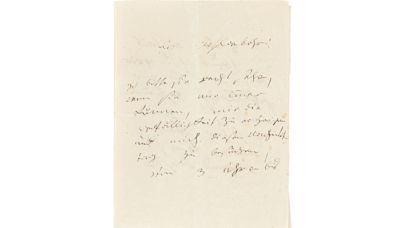Search results
2 days ago · Albert Einstein (born March 14, 1879, Ulm, Württemberg, Germany—died April 18, 1955, Princeton, New Jersey, U.S.) was a German-born physicist who developed the special and general theories of relativity and won the Nobel Prize for Physics in 1921 for his explanation of the photoelectric effect.
- Physics, Nazi Backlash, America
Albert Einstein - Physics, Nazi Backlash, America:...
- Kids
Albert Einstein was one of the greatest geniuses in the...
- Legacy
Albert Einstein - Physics, Relativity, Nobel Prize: In some...
- Facts & Related Content
Albert Einstein, the brilliant physicist and Nobel laureate,...
- Quotes
Albert Einstein: Out of My Later Years; Science. The whole...
- Bernhard Riemann
Bernhard Riemann (born September 17, 1826, Breselenz,...
- Arthur Holly Compton
Arthur Holly Compton, American physicist and joint winner,...
- Hermann Weyl
Hermann Weyl (born November 9, 1885, Elmshorn, near Hamburg,...
- Physics, Nazi Backlash, America
2 days ago · Albert Einstein - Physics, Relativity, Nobel Prize: After graduation in 1900, Einstein faced one of the greatest crises in his life. Because he studied advanced subjects on his own, he often cut classes; this earned him the animosity of some professors, especially Heinrich Weber.
2 days ago · Albert Einstein - Physics, Relativity, Nobel Prize: In some sense, Einstein, instead of being a relic, may have been too far ahead of his time. The strong force, a major piece of any unified field theory, was still a total mystery in Einstein’s lifetime.
5 days ago · In a special illustrated feature, Ben Platts-Mills explains why Albert Einstein and other physicists refused to believe black holes could be real. Were they too strange to imagine?
1 day ago · General relativity, also known as the general theory of relativity and Einstein's theory of gravity, is the geometric theory of gravitation published by Albert Einstein in 1915 and is the current description of gravitation in modern physics.
2 days ago · Albert Einstein, as quoted by Virgil Henshaw in Albert Einstein: Philosopher Scientist (1949) edited by Paul A. Schilpp I have repeatedly said that in my opinion the idea of a personal God is a childlike one.
1 day ago · In physics, the special theory of relativity, or special relativity for short, is a scientific theory of the relationship between space and time. In Albert Einstein 's 1905 treatment, the theory is presented as being based on just two postulates: [p 1] [1] [2]






